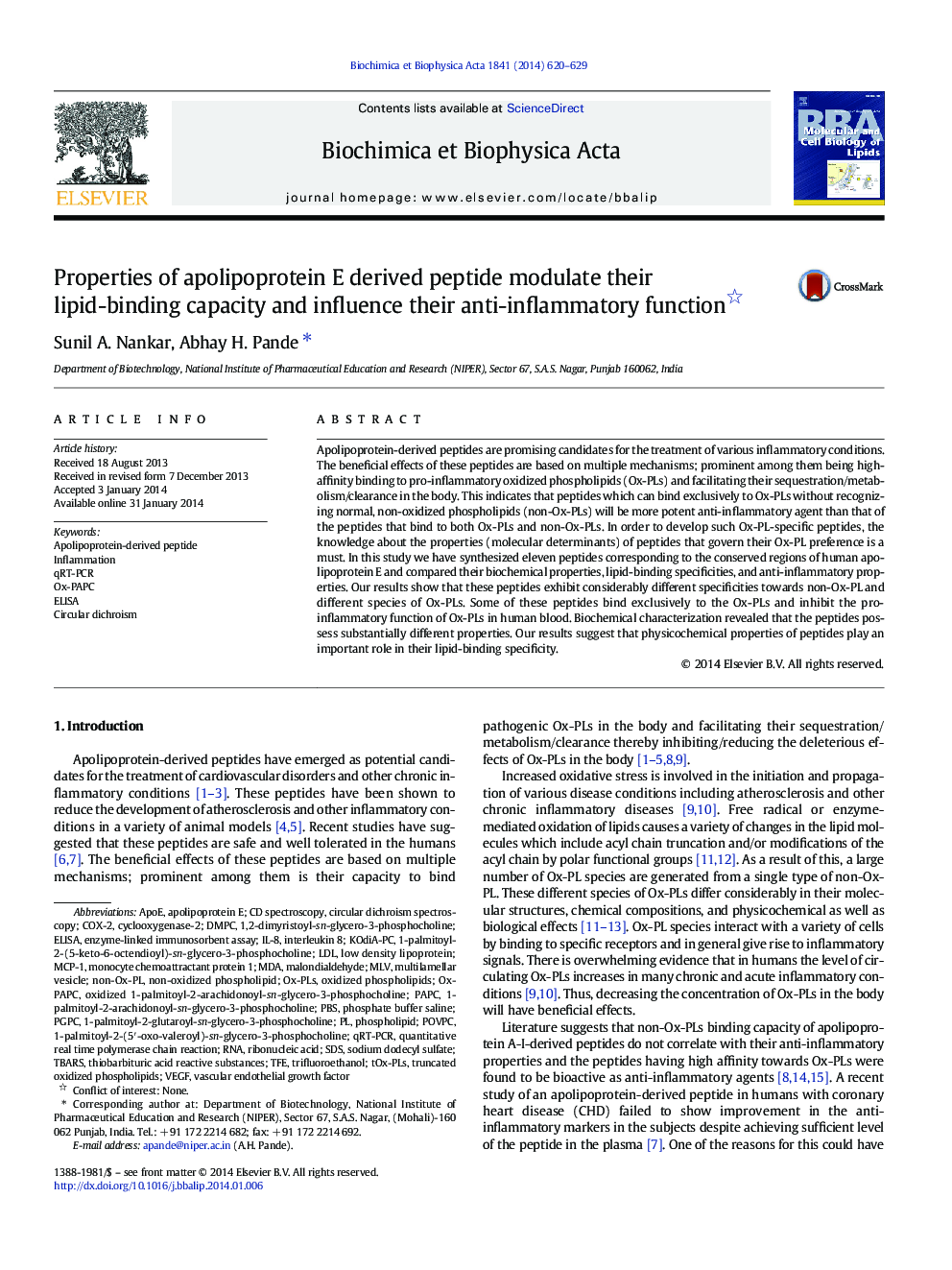| Article ID | Journal | Published Year | Pages | File Type |
|---|---|---|---|---|
| 8302434 | Biochimica et Biophysica Acta (BBA) - Molecular and Cell Biology of Lipids | 2014 | 10 Pages |
Abstract
Apolipoprotein-derived peptides are promising candidates for the treatment of various inflammatory conditions. The beneficial effects of these peptides are based on multiple mechanisms; prominent among them being high-affinity binding to pro-inflammatory oxidized phospholipids (Ox-PLs) and facilitating their sequestration/metabolism/clearance in the body. This indicates that peptides which can bind exclusively to Ox-PLs without recognizing normal, non-oxidized phospholipids (non-Ox-PLs) will be more potent anti-inflammatory agent than that of the peptides that bind to both Ox-PLs and non-Ox-PLs. In order to develop such Ox-PL-specific peptides, the knowledge about the properties (molecular determinants) of peptides that govern their Ox-PL preference is a must. In this study we have synthesized eleven peptides corresponding to the conserved regions of human apolipoprotein E and compared their biochemical properties, lipid-binding specificities, and anti-inflammatory properties. Our results show that these peptides exhibit considerably different specificities towards non-Ox-PL and different species of Ox-PLs. Some of these peptides bind exclusively to the Ox-PLs and inhibit the pro-inflammatory function of Ox-PLs in human blood. Biochemical characterization revealed that the peptides possess substantially different properties. Our results suggest that physicochemical properties of peptides play an important role in their lipid-binding specificity.
Keywords
Related Topics
Life Sciences
Biochemistry, Genetics and Molecular Biology
Biochemistry
Authors
Sunil A. Nankar, Abhay H. Pande,
